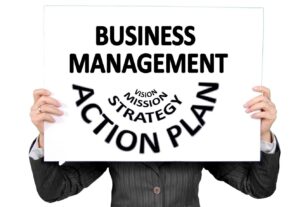
Pasadena City College Podcasts: LA’s ‘Who’s Who’ Discuss What You Want to Know About Workforce Development, Education, and the Economy
Many sectors influence the economic and workforce development (EWD) landscape, and each stratum is populated with many informed and inspired professionals. Each of these experts offers deep insights into the workings of their particular industry and how it is addressing the challenges and opportunities facing our complex employment, workforce, and economic situations.
We Like to Talk …
The Economic and Workforce Development (EWD) department at Pasadena City College (PCC) regularly connects with these experts to obtain information, understand their issues, and contemplate solutions to its learners’ most significant concerns. Through their eyes, PCC can glean the insights needed to guide course and program development and develop the services and supports that will help its students and business partners achieve the successes they seek. Through their inputs, the college can keep its finger on the ‘pulse’ of its industrial and economic partners (hence the name of this bi-monthly email newsletter, “The Pulse”).
While some of these discussions are covered in the Pulse letter itself, others are broadcast through the EWD’s regular “Future of Work” Podcast. In each, EWD Executive Director Salvatrice Cummo sits down for a lively and informative chat with these industry leaders and shares their views and opinions with the Podcast’s many listeners.
… About a Lot of Things
The specific order of podcast guest appearances is based primarily on available calendar opportunities. However, in general, the speaker line-up has broken into four main topics, each of which brings an independent perspective to the “Future of Work” and Economic Development conversations:
Government
Corporate and Industry
Policy influences
Education
Each conversation touches on both the overarching concerns that involve everyone – economic development, workforce development, educational opportunities, etc. – while also providing more in-depth insights and thoughts about the expert’s specific industry or role.
Listening to the podcasts chronologically offers listeners a wide-ranging discussion of issues, concerns, and questions that may arise in one sector but also has an impact, sometimes significantly, on them all. However, by grouping them into their respective industries and listening to each of those as a cluster, listeners can make connections and mine an even deeper understanding of the more granular concerns that consternate individual sectors as a whole.
Ganged into clusters below, you’ll find conversations with experts in those fields, along with their episode number, so you can easily find them on the Podcast main page.

Our Government Guests
The government is involved in almost every aspect of education, and policies and practices have profound impacts on every community. Understanding the pressures and priorities that drive civic decision-making helps educators and industries tailor their efforts to maximize the possible values in governmental initiatives.
We were fortunate to have not one but two government representatives on our inaugural episode. State Representative Chris Holden and Senator Anthony Portantino continued the conversation they had begun at PCC’s 2019 Future of Work Conference about improving and growing the nexus of shared goals among civic leaders, schools, and students.
Once launched, we engaged in a series of quasi-introductory education, industry, workforce, and government policy discussions at episodes 3 and 4 (Emerging Workforce Trends in Industry, parts 1 & 2), 5 and 6 (Workforce Education Policy: Building Pathways to Success for Students and Employers, parts 1 & 2), and 7 and 8 (Policy, Business & Education: A Deep Dive Discussion to Bridge the Gap, parts 1 & 2). These conversations make connections between workforce trends emerging in the LA region’s vast industrial landscape, policy insights around education and industry, and community colleges’ planning and practices in response to those factors.
Our next government representative (at episode 34) was Caroline Torosis, the Director of Economic and Business Development for LA County. She’s been in leadership at LA County to pursue several initiatives, including addressing wage disparities, seeking affordable housing opportunities, and now in developing workforce and economic opportunities for the County’s underserved populations.

Corporate & Industry
LA County as more than 10 million residents, many of whom work in one of its seven targeted industries. Each of those industries, in turn, hosts hundreds (or thousands) of smaller businesses, each of which contributes its own unique asset to the overall economic mix. And all of those businesses require a skilled workforce that can help them achieve their corporate goals and successes.
The challenge of finding that workforce was a concern even before the COVID pandemic occurred and got worse as the spread of the disease cost thousands of LA residents their jobs. Now, the region continues to suffer one of the nation’s highest unemployment rates, and infection rates continue to rise.
However, the County’s business community hasn’t been sitting idle during these past months, managing, when possible, the transition to a remote workforce or working to retain assets even while their customers were forced to stay home. Instead, many were compelled to address issues that might not have risen so quickly to importance but for the immense economic impact caused by the crisis.
Fortunately for EWD Podcast listeners, many were able to chat with Host Salvatrice Cummo remotely. They were happy to share their experience of the past year and also their views of the future for LA’s regional labor force and economy. There are too many of these highly informed and knowledgeable speakers to go into detail here, but this list includes their names, positions, respective occupations and professions, and links to their particular podcast episode.
Here, they are listed in the chronological sequence in which they appeared:
Jorge Orozco, Chief Executive Officer of Los Angeles County + USC Medical Center. A long-time healthcare administrator and advocate, Mr. Orozco appeared in Episode 2 on March 3.
Bill Manis, President & CEO of the San Gabriel Valley Economic Partnership. A retired City Manager, Mr. Manis shares insights gleaned during his 33-year career in Episode 9, which aired May 6.
Victor Parker, District Director of the Small Business Administration’s Los Angeles office. Building businesses means building the economy. Hear Mr. Parker’s insights on the system in Episode 10, airing May 13.
Don Loewel, Director – PCC Small Business Development Center. As the leader of this critically important small business support agency, Mr. Loewel also appeared in an earlier edition of the Pulse. His conversation occurred in Episode 11
Jessica Kim, Senior Director of Economic Development at the LA Economic Development Corporation. Ms. Kim brings years of strategic civic and business development experience to her role with LA’s premier economic development group (which was also featured in the Pulse). She appeared in Episode 12
Stephen Cheung, President of the World Trade Center, Los Angeles (WTCLA). Mr. Cheung helps existing industries do better while also encouraging new businesses to locate and thrive in the LA community. He spoke with us in Episode 15 on June 17.
Jesse Torres of Arroyo West. It should surprise no one that LA is home to one of America’s biggest entrepreneurial crowds. Mr. Arroyo tells us why these visionaries contribute so much to the economy and the future in Episode 20
Nate Constantine, Former Executive Director of Talent Acquisition at Warner Bros. The LA region is awash in great talent. Mr. Constantine discusses how he connects the brightest people to their best career opportunities in Episode 21.
Jim McCarthy, CEO & Co-Founder of Goldstar. Mr. McCarthy’s exuberance as CEO of “the world’s greatest audience generation company for live entertainment” is equally apparent in Episode 22.
Niki Lee, Principal of Ernst & Young, discusses how corporate culture determines employee satisfaction and productivity in Episode 23.
Philip June, Director of Engineering at SoCal Design Center & Long Beach Site Director, Boeing. So much more than an administrator, Mr. June’s engineering background now assists the Boeing teams he works with to accomplish their best. Hear it all in Episode 32.

Policy Influences
There are always those who think bigger than ‘the box’ – folks who don’t work in any particular sector but whose knowledge and experience bridge several sectors together. The PCC EWD Podcast has been honored to host a few of these enlightened thinkers.
Tamar Jacoby, Founder of Opportunity America. If you read nothing else about workforce development, read this organization’s report on the possibilities embedded in America’s community colleges in its report, “The Indispensable Institution.” She spoke about it in Episode 25 on November 5.
Ramona Schindelheim, Editor in Chief of WorkingNation, co-moderator of our November 12th Future of Work Virtual Conference, brought her keen analytical eye and long history of business and industry insights to two conversations on Episode 18 (July 8) and again at Episode 27 (on November 9).
Dr. D’Artagnan Scorza, Executive Director & Founder of the Social Justice Learning Institute. Dr. Scorza’s focus on educational equities drives his many economic and inclusion initiatives. Hear about those in Episode 29, recorded November 11.
Josh Davies, CEO, Center for Work Ethic Development. Workforce development should include more than training and skills. It should also have the seven ‘soft skills’ outlined by Mr. Davies organization. He graced our Podcast three times on Episode 13 (June 3 – Building Accountability), Episode 26 (November 6 – Breaking Barriers with Soft Skills), and Episode 31 (November 24 – Using 2020 Lessons to Forecast the Future).

Education
Government policy, industry demand, and enlightened development and economic theory play a growing role in the decisions being made at today’s community colleges. These Podcast guests share the experiences and wisdom they’ve gained as witnesses to how community college education is a growing foundation for the country’s workforce development efforts.
Dr. Erika Endrijonas, Superintendent-President of Pasadena City College. Her leadership role at PCC also puts her in the driver’s seat in its workforce development efforts. Dr. Endrijonas’s experience with students, systems, and instruction inform her discussions, which you’ll find in Episode 14 (June 10 – Leadership in a Time of Crisis) and Episode 28 (November 10 – Change is Possible).
Dr. Brock Klein, Associate Dean of Pathways FYE Program. Many students won’t finish college (or be productive members of the workforce) if they don’t have a positive first-year experience. Dr. Klein is PCC’s go-to expert on ensuring student persistence from one year to the next. Hear his thoughts in Episode 16.
Jacqueline Javier of The Freeman Center. Some careers build better when learners gain hands-on experience while also studying theory and practice. In Episode 17, you’ll hear how Ms. Javier leads PCC’s Freeman Center’s efforts to find and connect PCC students with work-based learning opportunities.
Darlene Miller, Executive Director of the National Council for Workforce Education. A long career in community college leadership directed Ms. Miller to her role with this workforce development thinktank. Her thoughts on where we’ve come from and where we are today can be heard in Episode 30, which aired November 12.
Dr. Stephanie Cellini, professor, George Washington University. There’s a shift in perspective going on about the significance of community colleges versus four-year schools. Dr. Cellini discusses the ramifications of the new philosophy and how it impacts the national economy in Episode 34.
Salvatrice Cummo, Executive Director of Economic & Workforce Development, PCC. She’s not just the Podcast’s co-host; she’s also the executive director of a growing and thriving Economic and Workforce Development department at PCC. She discusses how her business experience influences her current and future plans for PCC students and its neighboring business community in Episode 19, which aired July 15.
As broad and deep as this speaker profile list is, it’s only just the beginning of the PCC EWD’s exploration of the nexus between work, policy, economics, and education. Keep listening as we bring more of the LA region’s experts to weigh in on how the area can achieve greater success as it emerges from the COVID-19 pandemic freeze.


